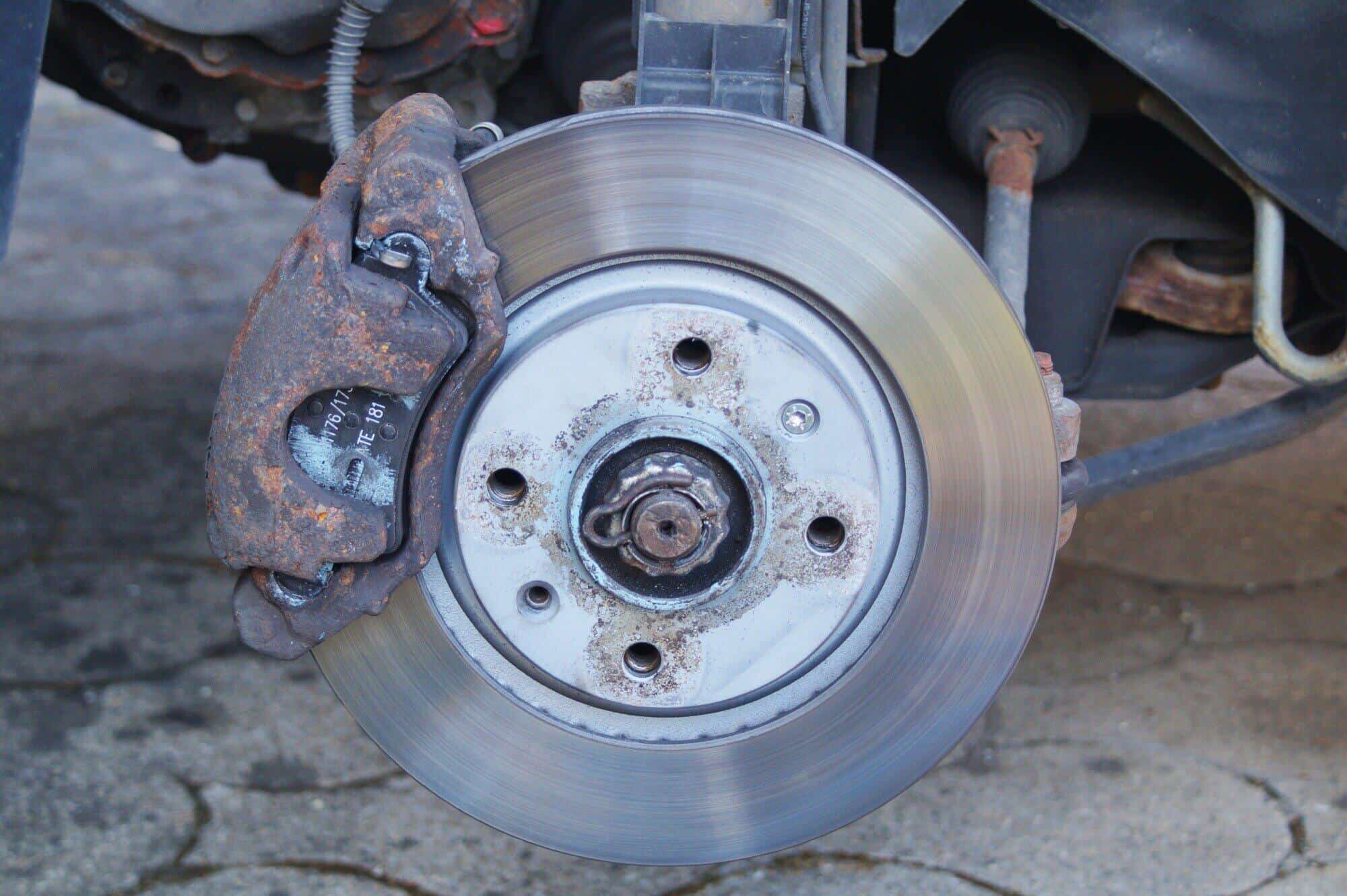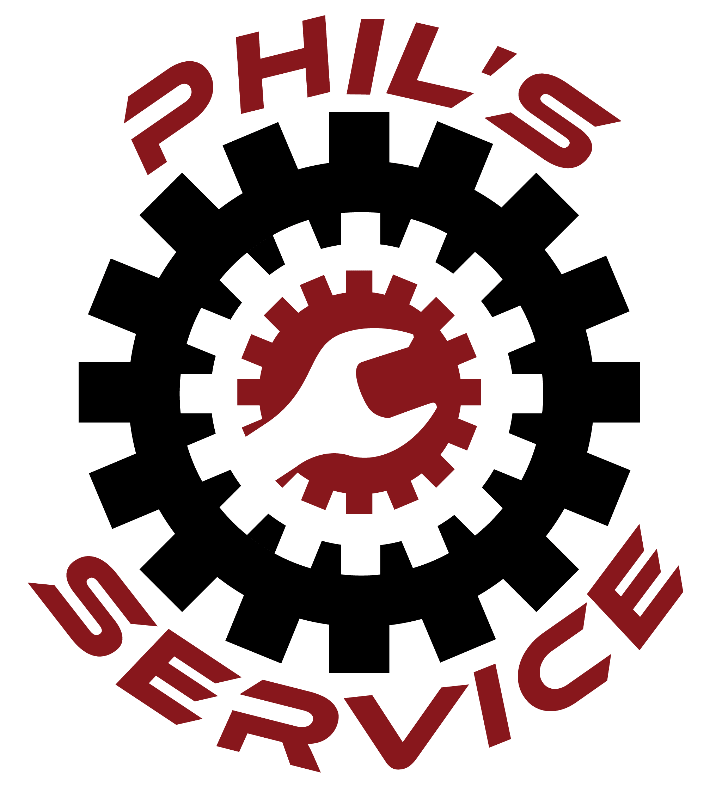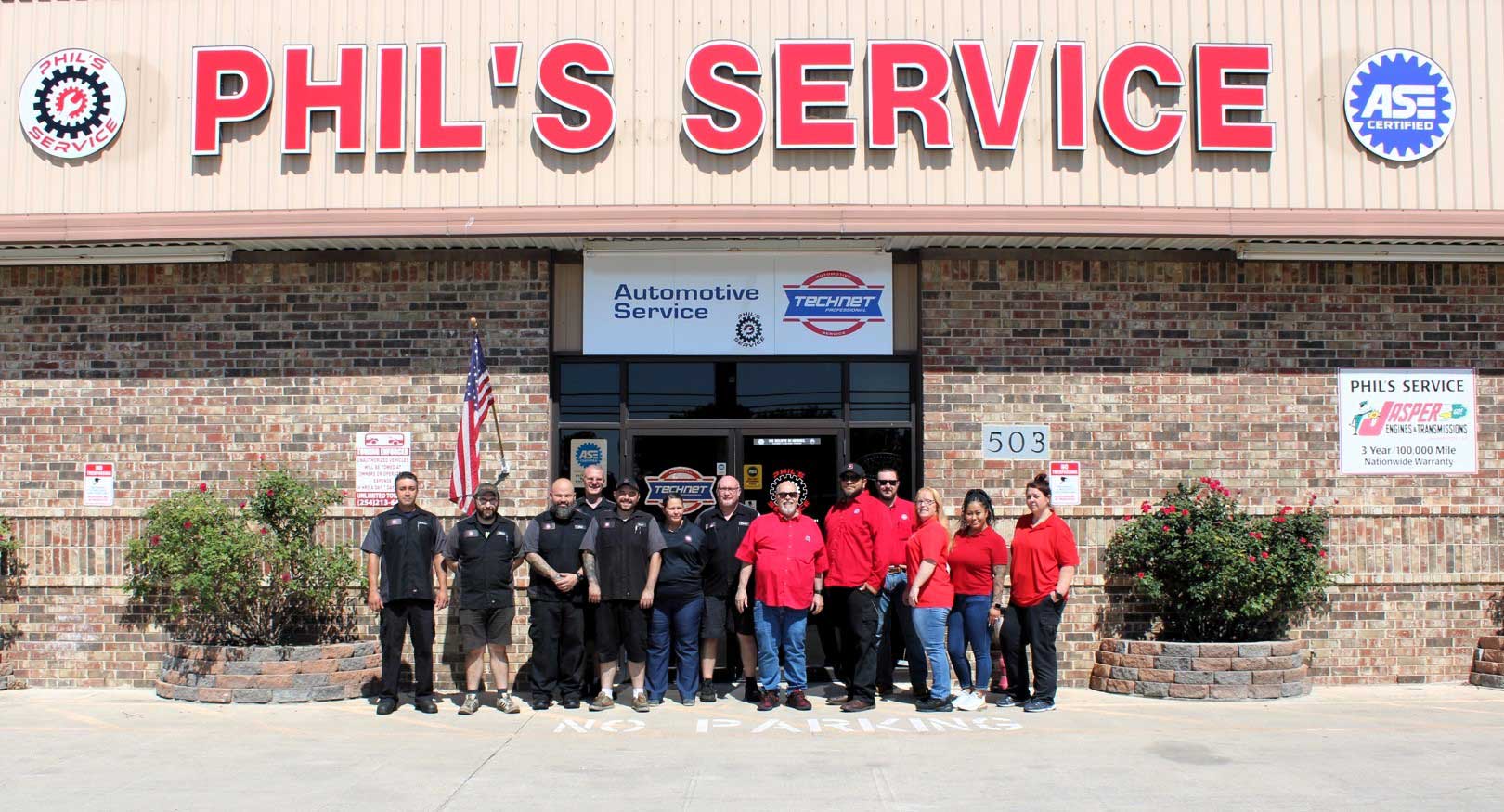Are Squeaking Brakes Dangerous? What You Should Know
Millions of people are injured each year (sometimes permanently) in car accidents according to the US Department of Transportation. Many of these collisions are preventable, though, and they can often be avoided through proactive vehicle maintenance.
Hearing squeaking brakes can be unsettling, leaving you to wonder if your safety is at risk. Understanding the causes and implications of this is crucial to ensuring safety on the road. Below, we'll explore the key info to consider about squeaky brakes.
Causes of Squeaking Brakes
Brake squeaking can result from various factors, including dust and debris trapped between the pads and rotors. Dust-related issues, in particular, can sometimes arise if work is performed on your car in auto shops.
High humidity or moisture exposure can temporarily cause brakes to make noise until they dry. The materials in certain brake pads, especially those with a high metal content, can create noises during use.
Improper installation or alignment of the brake components can also lead to unwanted sounds. Identifying the causes of brake noise early can help prevent further wear and expensive repairs.
When to Worry About Brake Noise?
Occasional brake noise might not be a concern, but consistent squeaking could indicate a problem. If you hear grinding, it might mean your brake pads are excessively worn and need immediate replacement. Unusual sounds combined with decreased braking efficiency signal the potential dangers of faulty brakes.
Vibrations or pulling when braking should also prompt professional inspection. Understanding the difference between minor noise and serious issues is essential for safe driving.
Signs of Brake Pad Wear
Worn brake pads often result in a noticeable decrease in stopping power. A high-pitched squealing sound when braking is a common indicator of pads nearing the end of their lifespan.
Visual inspection through the wheel can sometimes reveal thinning pads. If you feel your brakes pulsating, it could mean uneven pad wear or rotor damage. Paying attention to these signs helps you stay safe and avoid sudden braking failures.
Impact of Squeaking Brakes on Safety
Noisy brakes might seem like a small annoyance, but they can affect overall vehicle safety. Reduced braking performance can extend stopping distances, especially in emergencies.
Persistent noises might distract drivers and other road users, increasing accident risks. Ignoring these squeaky brakes safety concerns can lead to costly damage or even complete brake failure. Addressing the issue promptly minimizes risks, so don't neglect it.
Distinguishing Normal and Abnormal Brake Sounds
Not all brake noises signal a problem, but understanding the differences is key before fixing noisy brakes. A slight squeak during rainy weather is often harmless and temporary.
Continuous or loud noises, however, suggest mechanical issues that need attention. Clicking sounds might indicate loose parts in the braking system, as well.
How Squeaking Brakes Affect Your Car's Performance?
Persistent brake noise can negatively impact your car's performance over time. Vibrations from faulty brakes may wear down other components in the suspension system. Inconsistent braking caused by worn pads or rotors can make driving unpredictable.
Overheating from excessive friction can lead to reduced braking effectiveness. Regular inspections can address these issues and restore optimal performance.
Preventing Brake Noise Issues
Keeping your brakes clean and free of debris can help minimize noise. Scheduling routine checks with a professional mechanic allows early detection of problems.
Using high-quality brake pads reduces the likelihood of squeaks from cheap materials, and installing new pads ensures they function quietly and effectively. Following these brake maintenance tips regularly contributes to smoother and safer driving.
Professional Inspection for Noisy Brakes
If persistent noise occurs, having your brakes inspected by a professional is essential. Mechanics can diagnose the root cause, whether it's:
- Pad wear
- Rotor damage
- Alignment issues
They may also suggest upgrades or replacements for better performance. Waiting too long for an inspection can increase repair costs and risks.
Replacing Worn Brake Pads
Timely replacement of worn pads prevents more extensive damage to your braking system. Choosing pads designed for your vehicle type improves braking efficiency and reduces noise. Installation by a skilled mechanic ensures correct alignment and reliable performance.
Neglecting pad replacement can damage rotors and increase repair costs. Regular brake checks are a key form of vehicle maintenance that helps you stay ahead of potential issues.
Maintaining Brakes for Long-Term Safety
Routine maintenance plays a crucial role in prolonging the life of your braking system. Replacing fluid periodically prevents corrosion and maintains brake responsiveness.
Inspecting rotors and pads ensures all components work as intended. Addressing minor issues early avoids costly repairs down the line, and committing to a regular brake care schedule keeps your vehicle safe and dependable.
Finding Car Repair Services
If you notice signs your brakes need repair, it's crucial to find the right professional. They'll have the tools and resources to help you overcome the issues you face. Below, we'll illuminate the key attributes to keep in mind.
Qualities of Reliable Repair Shops
A dependable repair shop prioritizes customer satisfaction and transparency. They provide clear estimates and explain repairs in simple terms.
Skilled technicians with certifications indicate a shop's commitment to quality service. Using quality tools and equipment helps them diagnose and fix problems efficiently.
Evaluating Service Expertise
Understanding a shop's expertise can help you feel confident in their abilities. Technicians should be familiar with your vehicle's make and model to handle repairs effectively.
Shops with advanced diagnostic tools are better equipped to identify complex issues. Experience with a variety of brake systems often indicates well-rounded skills.
Ensuring Long-Term Brake Performance
Long-lasting brake performance requires more than quick fixes. Quality replacement parts reduce the likelihood of recurring issues.
Shops that offer maintenance plans help prevent future problems and extend the lifespan of your brakes. Regular inspections performed by skilled professionals catch potential wear before it becomes severe.
Never Neglect Squeaking Brakes
Squeaking brakes can signal anything from harmless noise to serious safety concerns. If you notice persistent brake noise, consult a professional to identify the problem and take the necessary steps to resolve it.
Phil's Service stands out with its commitment to excellence as Killeen's only ASE Blue Seal Certified Repair Shop. Customers trust the quality, as reflected in a 98% referral rate and an impressive 4.92-star rating across 434 reviews. You can schedule an appointment today to learn more about how we can help.
Wondering why are squeaking brakes dangerous? Schedule an appointment at Phil's Service and ask about their brake services.
Millions of people are injured each year (sometimes permanently) in car accidents according to the US Department of Transportation. Many of these collisions are preventable, though, and they can often be avoided through proactive vehicle maintenance.
Hearing squeaking brakes can be unsettling, leaving you to wonder if your safety is at risk. Understanding the causes and implications of this is crucial to ensuring safety on the road. Below, we'll explore the key info to consider about squeaky brakes.
Causes of Squeaking Brakes
Brake squeaking can result from various factors, including dust and debris trapped between the pads and rotors. Dust-related issues, in particular, can sometimes arise if work is performed on your car in auto shops.
High humidity or moisture exposure can temporarily cause brakes to make noise until they dry. The materials in certain brake pads, especially those with a high metal content, can create noises during use.
Improper installation or alignment of the brake components can also lead to unwanted sounds. Identifying the causes of brake noise early can help prevent further wear and expensive repairs.
When to Worry About Brake Noise?
Occasional brake noise might not be a concern, but consistent squeaking could indicate a problem. If you hear grinding, it might mean your brake pads are excessively worn and need immediate replacement. Unusual sounds combined with decreased braking efficiency signal the potential dangers of faulty brakes.
Vibrations or pulling when braking should also prompt professional inspection. Understanding the difference between minor noise and serious issues is essential for safe driving.
Signs of Brake Pad Wear
Worn brake pads often result in a noticeable decrease in stopping power. A high-pitched squealing sound when braking is a common indicator of pads nearing the end of their lifespan.
Visual inspection through the wheel can sometimes reveal thinning pads. If you feel your brakes pulsating, it could mean uneven pad wear or rotor damage. Paying attention to these signs helps you stay safe and avoid sudden braking failures.
Impact of Squeaking Brakes on Safety
Noisy brakes might seem like a small annoyance, but they can affect overall vehicle safety. Reduced braking performance can extend stopping distances, especially in emergencies.
Persistent noises might distract drivers and other road users, increasing accident risks. Ignoring these squeaky brakes safety concerns can lead to costly damage or even complete brake failure. Addressing the issue promptly minimizes risks, so don't neglect it.
Distinguishing Normal and Abnormal Brake Sounds
Not all brake noises signal a problem, but understanding the differences is key before fixing noisy brakes. A slight squeak during rainy weather is often harmless and temporary.
Continuous or loud noises, however, suggest mechanical issues that need attention. Clicking sounds might indicate loose parts in the braking system, as well.
How Squeaking Brakes Affect Your Car's Performance?
Persistent brake noise can negatively impact your car's performance over time. Vibrations from faulty brakes may wear down other components in the suspension system. Inconsistent braking caused by worn pads or rotors can make driving unpredictable.
Overheating from excessive friction can lead to reduced braking effectiveness. Regular inspections can address these issues and restore optimal performance.
Preventing Brake Noise Issues
Keeping your brakes clean and free of debris can help minimize noise. Scheduling routine checks with a professional mechanic allows early detection of problems.
Using high-quality brake pads reduces the likelihood of squeaks from cheap materials, and installing new pads ensures they function quietly and effectively. Following these brake maintenance tips regularly contributes to smoother and safer driving.
Professional Inspection for Noisy Brakes
If persistent noise occurs, having your brakes inspected by a professional is essential. Mechanics can diagnose the root cause, whether it's:
- Pad wear
- Rotor damage
- Alignment issues
They may also suggest upgrades or replacements for better performance. Waiting too long for an inspection can increase repair costs and risks.
Replacing Worn Brake Pads
Timely replacement of worn pads prevents more extensive damage to your braking system. Choosing pads designed for your vehicle type improves braking efficiency and reduces noise. Installation by a skilled mechanic ensures correct alignment and reliable performance.
Neglecting pad replacement can damage rotors and increase repair costs. Regular brake checks are a key form of vehicle maintenance that helps you stay ahead of potential issues.
Maintaining Brakes for Long-Term Safety
Routine maintenance plays a crucial role in prolonging the life of your braking system. Replacing fluid periodically prevents corrosion and maintains brake responsiveness.
Inspecting rotors and pads ensures all components work as intended. Addressing minor issues early avoids costly repairs down the line, and committing to a regular brake care schedule keeps your vehicle safe and dependable.
Finding Car Repair Services
If you notice signs your brakes need repair, it's crucial to find the right professional. They'll have the tools and resources to help you overcome the issues you face. Below, we'll illuminate the key attributes to keep in mind.
Qualities of Reliable Repair Shops
A dependable repair shop prioritizes customer satisfaction and transparency. They provide clear estimates and explain repairs in simple terms.
Skilled technicians with certifications indicate a shop's commitment to quality service. Using quality tools and equipment helps them diagnose and fix problems efficiently.
Evaluating Service Expertise
Understanding a shop's expertise can help you feel confident in their abilities. Technicians should be familiar with your vehicle's make and model to handle repairs effectively.
Shops with advanced diagnostic tools are better equipped to identify complex issues. Experience with a variety of brake systems often indicates well-rounded skills.
Ensuring Long-Term Brake Performance
Long-lasting brake performance requires more than quick fixes. Quality replacement parts reduce the likelihood of recurring issues.
Shops that offer maintenance plans help prevent future problems and extend the lifespan of your brakes. Regular inspections performed by skilled professionals catch potential wear before it becomes severe.
Never Neglect Squeaking Brakes
Squeaking brakes can signal anything from harmless noise to serious safety concerns. If you notice persistent brake noise, consult a professional to identify the problem and take the necessary steps to resolve it.
Phil's Service stands out with its commitment to excellence as Killeen's only ASE Blue Seal Certified Repair Shop. Customers trust the quality, as reflected in a 98% referral rate and an impressive 4.92-star rating across 434 reviews. You can schedule an appointment today to learn more about how we can help.


